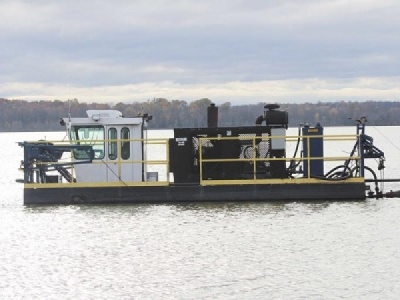
Posted on November 8, 2018
State Senator Patty Ritchie was greeted by Fulton Mayor Ron Woodward Sr on Monday to address the team of operators overseeing the development of a $200,000 dredge along C.C. Barrett Drive to clean Lake Neatahwanta and make it usable to the public.
Woodward used the brief Nov. 5 press conference to personally thank Ritchie for her “integral role” in securing funds for local development and clean up projects.
Most recently, Ritchie secured $100,000 from the state, matched by the city of Fulton, to purchase the dredge from private contractor Groh Dredging.
Ritchie said Mayor Woodward brought the project to clean up Lake Neatahwanta to her attention when she was first elected in 2010, and she listed it as a “priority” while in Albany. She said seeing it approach completion was “pretty amazing.”
“For me, it’s great to actually see how far you’ve come in the last few years,” Ritchie said, addressing Woodward and the team of engineers. “I look forward to seeing the project completed.”
The lake is widely used by locals for kayaking and fishing, and for some time, residents have been working to help improve water quality and access the waterway, Woodward said.
“Even though they’re not out here swimming because of the algae, they’re out here fishing and boating,” Woodward said.
The project, currently in its third year, is expected to take another seven years before their state permit runs out, Woodward said. However, operator Mat Overton said his team is hoping to finish it as soon as possible.
Lake Neatahwanta sat in limbo For more than two decades after health officials deemed the water unsafe for swimmers, but in recent years dredging operations have removed built-up sediment from the lakebed in an effort to improve water quality and return the lake to its former status as a recreational attraction.
Health officials closed Stevenson Beach and North Bay Beach in July 1988 due to high levels of fecal coliform bacteria, and Lake Neatahwanta has remained closed to swimmers for nearly three decades.
Local officials and scientists have said many years of sediment build-up caused the lake to become shallower and warmer over time, which helped bacteria and blue-green algae thrive.
Source: Oswego County





